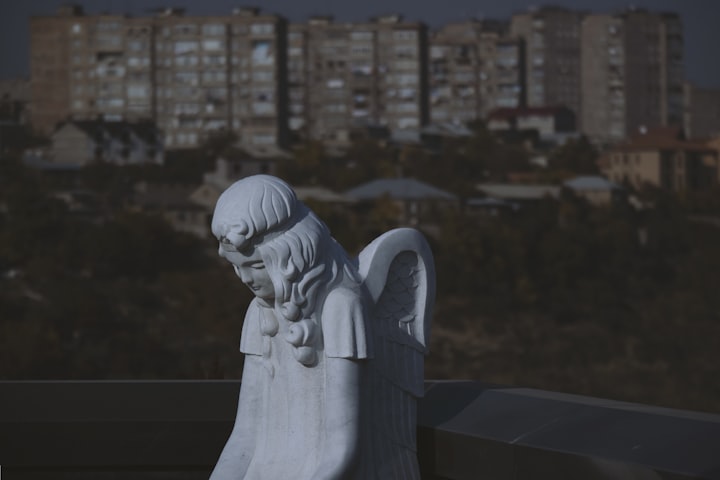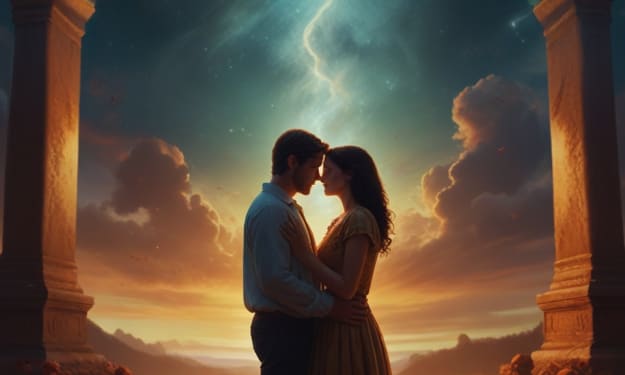How Grief Works
Death is the burden of the living.

After the funeral, the life after reschedules itself around your grief and you have no choice but to move along with the passage of time. That’s when grief finds you. The initial shock wears off. The Band-Aid of loss ripped clean from raw flesh so that all that’s left is just you, laid bare for everyone to see.
That’s when the real grieving begins.
I never had the chance to grieve properly. My grandmother’s passing was followed two scant weeks by her son’s. My funeral dress didn’t even make its way to the cleaners before I had to wear it again. The sixteen months that followed were invested in the care of my mother, who was struggling with the second round of cancer treatment and finalizing my grandmother’s affairs. I never had time to grieve the loss of my grandmother and uncle. Instead, I drowned myself in all of the mundane tasks that life presents to dodge the truth. My life had changed completely and was about to turn over again.
I buried my mother less than a year later. I watched as her remains were lowered into the ground. I buried my past in that hole with her and vowed never to dig it up again. But grief has a way of finding you no matter how fast you run away from it. Ten months later, when my grandfather died, I couldn’t let myself grieve. I was pregnant at the time and worried that if I let go of all the pain and grief that flooded my heart, I wouldn’t be able to breathe or support the life growing inside me.
I packaged my grief into a box and buried it so far deep down into the recesses of my mind that only a quarantine would allow it to escape entirely. My mind had too much time to wander into the land of what if.
What if they were all still here?
What if my mother had met her grandchildren?
How would my life be different if they all managed to live just five years longer?
My evenings in quarantine after the children went to bed were filled with mind-numbing television that I only looked at but didn’t watch. I had so many questions and no one to provide the answers. The irony of loss is that the person you most need to talk to is no longer around. I needed my mother’s soothing voice to comfort me, the wisdom of my grandfather to let me know I was doing the right thing, my uncle to remind me that life could still be fun, and my grandmother’s way of knowing exactly what I needed without saying a word.
It took me a decade to slowly sift through all of the emotions I feel daily. Sometimes I wonder how I managed to go through an entire day without thinking about them. Other days, I feel guilty for having to take a picture out to remember a smile or the exact green of my mother’s eyes.
I don’t remember her face. Memories of her are more snapshots of stories passed down from sibling to sibling, cousin to cousin. In five years, I will reach the point that I have dreaded since she passed away. It’s the moment when I realize that I have been without her, longer than I’ve had her. And I don’t know what to do with that. The fact that I’ve been able to live and have experienced so much life in those twenty-five years makes me feel like I’ve betrayed them in some way, even though I know that’s not the case.
That’s how grief works.
The loss of someone you love makes you feel guilty for even thinking about moving on with your life. It’s that feeling you get in the pit of your stomach when you realize that you went through an entire day with that person, never knowing that it would be their last. It’s all the things you wish you dared to say and all the things you wish to God that you didn’t.
Grief disrupts your very existence, it is the ultimate destroyer of plans, and yet we still manage to live. It’s the one thing school and your parents never taught you. How does one grieve well when everyone reacts to their grief differently?
There’s a cliché that I hate because it isn’t right, time heals all wounds. Maybe grief isn’t a wound, because wounds do heal. They scab over as the skin underneath works to heal itself out of sight. Then one day, as if by magic, the scab falls off only to reveal, you, brand new and a scar to show for your pain.
But grief doesn’t leave a scar. It’s the wound that never heals right. It is the scab that life constantly picks at, revealing the bloody hole beneath.
Every time I see a woman with her kids and her mother, I grieve. I want to run up to her and say, “You don’t know how lucky you are.” I want to scream it out to all the people who take their parents for granted. I want to let them know that tomorrow, they could wake up in a different reality. But all that comes out is silence and the knowledge that my words don’t matter.
My life doesn’t look in any respect how I imagined it. I never thought I would be in my twenties when I lost my family. I figured I would be well into middle age with a family myself before I even had to think of it. I wanted to be that daughter whose mother lived with them. I lived with my grandparents, and I wanted my children to have the same experience. But life had other plans, and now I feel like I’m not truly living, just surviving. I fumble my way through one holiday to the next, knowing that it will never live up to the ones of my youth.
When I look at my children, I realize my mortality in ways most people don’t. I know that someday they will carry the same grief that I do. My desire to live forever to spare them that heartbreak makes me desperate to try anything that promises longevity. I know in the end that it doesn’t matter. My time will come much as it does to everyone else. I can’t shield them from the pain, but I can make sure they know that grief is something that you live with and not something you get over. Death doesn’t happen to the deceased it happens to those left behind.
About the Creator
That Writer Chick
That Writer Chick is an author, essayist, and mother living in Colorado. T.W.C. holds a Master's in Professional Writing and is a Yale University Writer's Workshop Alum. If you love reading her words consider subscribing and leaving a tip.
Reader insights
Nice work
Very well written. Keep up the good work!
Top insights
Heartfelt and relatable
The story invoked strong personal emotions
On-point and relevant
Writing reflected the title & theme






Comments (1)
"...the ultimate destroyer of plans..." You certainly got that right. I liked the way you referenced that Time and grief were different. I, too, dislike that statement about time healing wounds. My dad has passed but his words stay with me, "100 years from today, you won't even remember it." He was referencing any scrapes or falls, but it can definitely apply to life and grief. Thank you for the read. It was good.